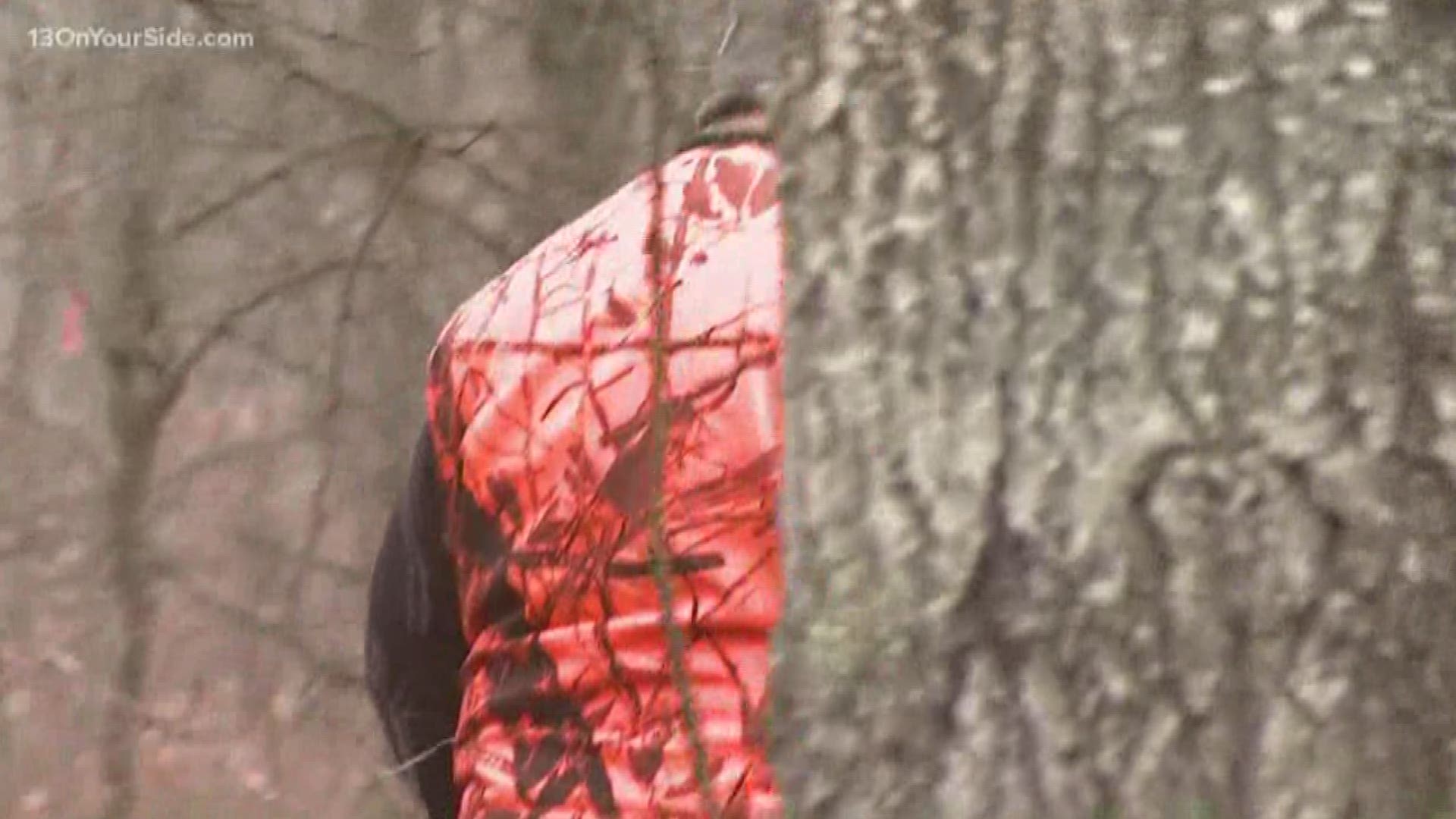GRAND RAPIDS, Mich — After the many stories 13 ON YOUR SIDE has reported on the spreading threat of Eastern Equine Encephalitis, the same question continues to appear. Can humans who eat deer meat with EEE, get the virus themselves?
To answer this question, we spoke to the Department of Natural Resources.
"The greatest risk is just being out in the woods at that time of day when mosquitoes are active," DNR Disease Lab Wildlife Biologist and Pathologist Tom Cooley said.
So how does eating game infected with EEE affect humans?
"That shouldn't be possible. If they cook the meat to 160 degrees, they would kill viruses that are there as well as bacteria that are there," Cooley said. "It would to be unlikely that they'll be infected that way. By far the greatest risk would be the mosquitoes."
So we can verify, there is no evidence that humans can contract EEE from eating meat infected with the virus. There are precautionary measures to avoid any possible infection.
"If they're taking the carcasses and they're processing it, the recommendation is to bone the carcasses out and leave the skull and spinal cord in tact, that way you're not exposing nervous tissue to the hunter," Cooley said.
Below are helpful tips and information from the Department of Natural Resources.
The greatest risk from Eastern Equine Encephalitis that hunters face is exposure to mosquitoes, not handling or consuming normal appearing deer from affected counties. Hunters are encouraged to check the Michigan Emerging Disease Issues website, which is regularly updated, for a map of counties reporting EEE activity in Michigan. In counties where EEE activity is occurring, hunters should take precautions to minimize their risk for mosquito bites by:
- Staying indoors between dusk and dawn, when mosquitoes are most active.
- Wearing long sleeves and pants to limit exposed skin.
- Wearing an effective mosquito repellent when outdoors.
Although many species of animals including deer and horses can become ill with EEE, there is no evidence that people can become infected from eating infected meat. Nonetheless, hunters can avoid any potential risk by taking the following common-sense precautions:
- Don’t handle or consume wild animals that appear sick or act abnormally.
- Wear gloves and safety glasses when handling, field-dressing and processing game.
- Handle knives carefully to prevent accidental cuts.
- Cook deer meat thoroughly (at least 160 degrees, according to the U.S. Department of Agriculture).
- Minimize contact with brain or spinal tissues. Do not cut into the head of any deer that behaved abnormally even to remove the rack. When removing antlers from healthy deer, use a hand saw rather than a power saw, and always wear safety glasses.
- Bone out the carcass, keeping both the head and spine intact.
- Wash hands with soap and water after handling carcasses and before and after handling meat.
- Thoroughly sanitize equipment and work surfaces used during processing with bleach solution (1 tablespoon of bleach to 1 gallon water). Consider keeping a separate set of knives used only for butchering deer.
Citizens/hunters observing a deer that is obviously sick and behaving abnormally should contact the closest DNR office during business hours, use the DNR’s Eyes in the Field Web application, or contact the DNR Report All Poaching (RAP) Line after 5 p.m. and on weekends to help us continue to monitor EEE. The DNR RAP Line is available 24 hours a day at 1-800-292-7800.
Here are FAQs about EEE and aerial spraying:
►Make it easy to keep up to date with more stories like this. Download the 13 ON YOUR SIDE app now.
Have a news tip? Email news@13onyourside.com, visit our Facebook page or Twitter. Subscribe to our YouTube channel.

